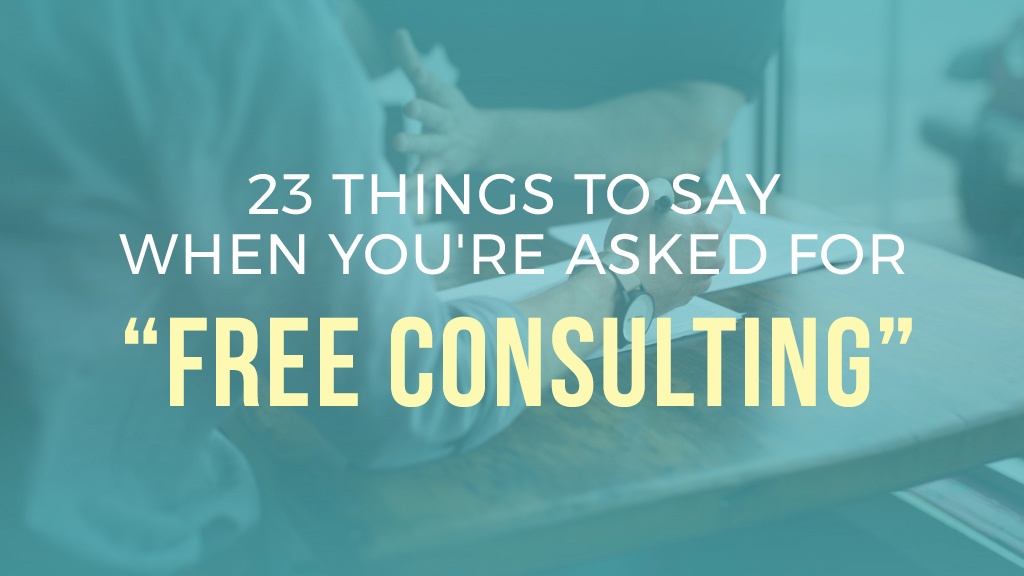Guest column by Peter George
When it comes to marketing your services, two facts hold true.
One is, when things are important to people, they buy -- or at least attempt to buy -- from a recognized expert.
The other is, to be most profitable, you must differentiate yourself from your competition. One of the most effective ways to differentiate yourself is to be a recognized expert in your field.
So why don't more people market themselves as experts? It's simple. It's only because they do not believe themselves to be worthy of the title.
Let's take a look at what an expert really is. It is not some mythical stature, achieved by a select few. The Oxford Dictionary defines an expert as "a person who is very knowledgeable about or skilful in a particular area." Nowhere does it state that you have to be the absolute best at what they do.
Take Derek Jeter of the New York Yankees, for example. Is he an expert hitter? You bet. Is he the best hitter to ever play the game? No, but that doesn't make him any less an expert. Is Dr. Arun Singh at Rhode Island Hospital an expert cardiothoracic surgeon. Definitely. Is he the best in the world? Most likely not, but he is one of the very best in the New England region.
How to be recognized as an expert
First and foremost, you have to decide that you are, or will be, an expert. If you need additional knowledge, skill, or experience, get it. Read, take courses, give free services ... do whatever it takes to overcome what it is that keeps you from being an expert. Perhaps all you have to overcome is your fear of sounding pretentious. Don't give this a second thought. By using the word judiciously, this isn't a problem.
Although considering yourself to be an expert is the first step, being considered an expert by your target audience requires consistent demonstration of your expertise. Following are some of the ways you can accomplish this.
Here's one caution. Do not try to become an expert at everything.
I often here people say, "I specialize in all aspect of my profession." I highly doubt that's true. Even if it is, does it benefit them? Would you want to have brain surgery done by a doctor who told you he is a neurosurgeon, cardiologist, otolaryngologist, and proctologist? Probably not.
Speaking
Speaking is an excellent way to showcase your knowledge, accomplishments, and abilities. The opportunities are almost endless. They include being a keynote or breakout speaker at conferences. You can produce your own seminars or do so with the help of your local Chamber of Commerce or other organization. The same is true for workshops. You can serve on a panel at your industry's meetings -- local, regional, or national.
Because there are so many opportunities, you might not know where to begin. My suggestion is that you look at your industry or a related field. If there are monthly meetings, do they have speakers? Are there special events where speakers are featured? Do chambers in other areas of the country invite people in your profession to speak, and if so, on what topics? Once you begin investigating, you'll be surprised at the number of possibilities that exist.
Writing
When I mention writing, people think of newspapers, magazines, and books and that their chances of getting published are slim. Even if that were true, there are many more avenues available to those who want to write about subjects they know well.
Let's discuss writing articles. To begin, you don't have to look any further than the Chambers of Commerce. They are often looking for well-written articles that they can use in their newspapers. You can also provide articles to your local newspaper and industry journals. Of course you can publish your own newsletter or write for someone else's. The correct option is the one that works for you.
Above are some of the outlets for articles on paper. Online vehicles offer you a completely new set of tactics. Just like the paper versions, you can write for your own newsletter (often referred to as an ezine) or for someone else who already has a list of subscribers or recipients.
Another venue for articles is online article repositories and distributors. These are places where you submit your articles for review. If accepted, the articles are included in the databases. From there, people can either read them or actually use them in their online publications. This is done at no charge. How does this help?
The people who use the articles agree to include your resource box. This is where you let readers know how they can benefit from your services or obtain additional information -- much like my resource box at the end of this article.
Writing a book or books is an extremely powerful way to demonstrate that you are an expert. Whether published by publishers or yourself, a book has long been the epitome of writing. Even accomplished news columnists are compelled to write books. And it's not as difficult as you may think.
Let's say you have written a number of articles. Then you have the basis for several chapters in your book. And a book does not have to be lengthy. It can be as short or long as necessary to get its point across. You can also write an e-book, which is a short book that is made available for downloading online.
Other opportunities
The list could go on, but I will conclude with just a few more ideas.
People who are interviewed by the press are looked at as experts.
By prudently sending out press releases and becoming known to the press, you better your chances of being one of the people they turn to.
Speaking of interviews, you may also make yourself available to other experts who are writing their own books or articles and need opinions and personal viewpoints.
Tips sheets and special reports make wonderful products that you can give to your prospects and clients or use as add-ons. These are generally rather short, but they once again indicate that you have sufficient expertise in your field.
Now you have several ways to be a recognized expert in your field. It's time to jump in and start swimming!
-------------------------
Peter George is the marketing coach and recognized expert who is known for helping self-employed professionals attract more clients, make more profits, and have more time to enjoy life. Immediately download "101 Ways to Attract More Clients" at http://MoreClientsMoreProfits.com
 I got a phone call a few days ago from my friend Steve who is a fellow independent professional. He said to me at the beginning of the call, "David, I'm calling you as a reference."
I got a phone call a few days ago from my friend Steve who is a fellow independent professional. He said to me at the beginning of the call, "David, I'm calling you as a reference."

 As a marketing speaker, during presentations I often have the occasion to mention other people. You have those opportunities every day too. You may do this through a success story one of your clients enjoyed or by sharing a quick anecdote.
As a marketing speaker, during presentations I often have the occasion to mention other people. You have those opportunities every day too. You may do this through a success story one of your clients enjoyed or by sharing a quick anecdote. I'm a marketing speaker - I am not a golfer, but the following bits of wisdom from former US Open champion Tom Kite contain value for you that you can apply way beyond the links...
I'm a marketing speaker - I am not a golfer, but the following bits of wisdom from former US Open champion Tom Kite contain value for you that you can apply way beyond the links... 


